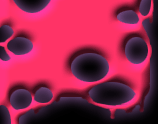|
THE LUNGS
Cellular respiration occurs in every living cell in your body. It is the reaction that provides energy for cellular activities. If respiration stops, the cell no longer has energy for cellular activities & the cell dies. As respiration occurs carbon dioxide is produced as a waste product. As the carbon dioxide accumulates in body cells, it eventually diffuses out of the cells & into the bloodstream, which eventually circulates to the lungs. And here, in the alveoli of the lungs, carbon dioxide diffuses from the blood, into the lung tissue, and then leaves the body every time we exhale. We should note that some water vapor also exits the body during exhalation.
THE LIVER
The liver is a large, important organ. In fact it is the largest internal organ in our bodies. Its numerous functions make it of the circulatory, digestive, and excretory systems. Some proteins & other nitrogenous compounds are broken down in the liver by a process called deamination. As a result of these reactions, a nitrogenous waste called urea is formed.
THE SKIN
Sweat comes out of pores in your skin and is a mixture of three metabolic wastes: water, salts, & urea. As you sweat, your body accomplishes two things: 1) sweating has a cooling effect on the body, and 2) metabolic wastes are excreted.

There are two layers to the skin. The thin epidermis at the top, and the thicker dermis below. The inner layer of skin is where we find oil glands, hair follicles, fatty layers, nerves, and sweat glands.
The sweat gland is a tubular structure tangled with capillaries. This close association of tubes allows wastes to diffuse from the blood & into the sweat gland. And then, when body temperature rises, the fluid is released from the gland, travels through the tube & reaches the skin surface through openings called pores.
THE KIDNEYS
 The urinary system is composed of two kidneys, two tubes called ureters, one urinary bladder, and another tube called the urethra. The urinary system is composed of two kidneys, two tubes called ureters, one urinary bladder, and another tube called the urethra.
The kidneys filter blood, so it's no surprise that there are a couple of blood vessels attached directly to each kidney.
Three of the four major metabolic wastes produced by the body are filtered from the blood by the kidneys are water, salts, & urea These are the same three wastes that sweat glands filter & excrete.
Each kidney are made up of thousands of tiny filtering sub-units called nephrons. bladder.
The bladder temporarily stores urine. And the urethra is the tube through which urine leaves the body when you go pee.
|

